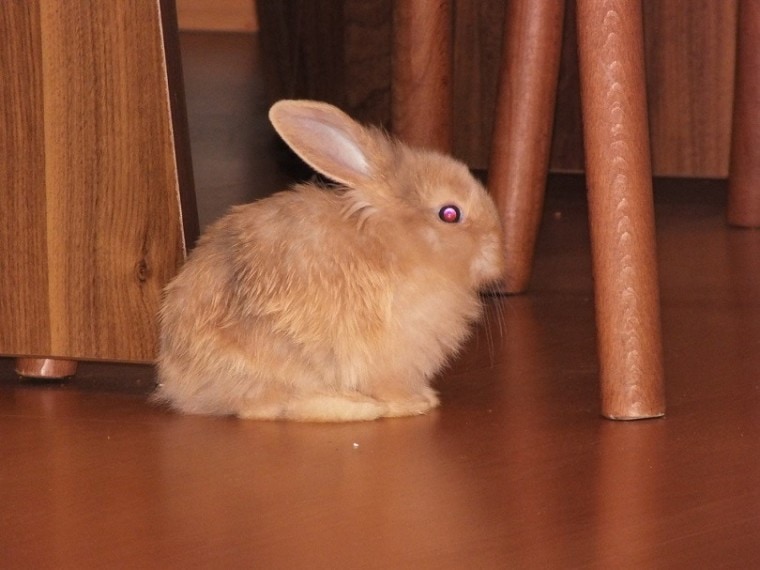
In general, rabbits have a reputation for being gentle creatures and kind, if wary, pets. If you’ve ever seen a rabbit who feels threatened though, you may know that their sharp teeth and powerful back teeth can be put to destructive use!
If you’re thinking of buying or adopting a rabbit as a pet, you may be wondering which breeds are most likely to be aggressive. While aggression in rabbits is most often a behavioral problem more than a genetic problem, certain breeds are predisposed to more aggressive tendencies in response to danger.
Are you ready to learn more about which rabbit breeds are considered most combative and what to do about it? Then let’s get started!
1. Belgian Hares
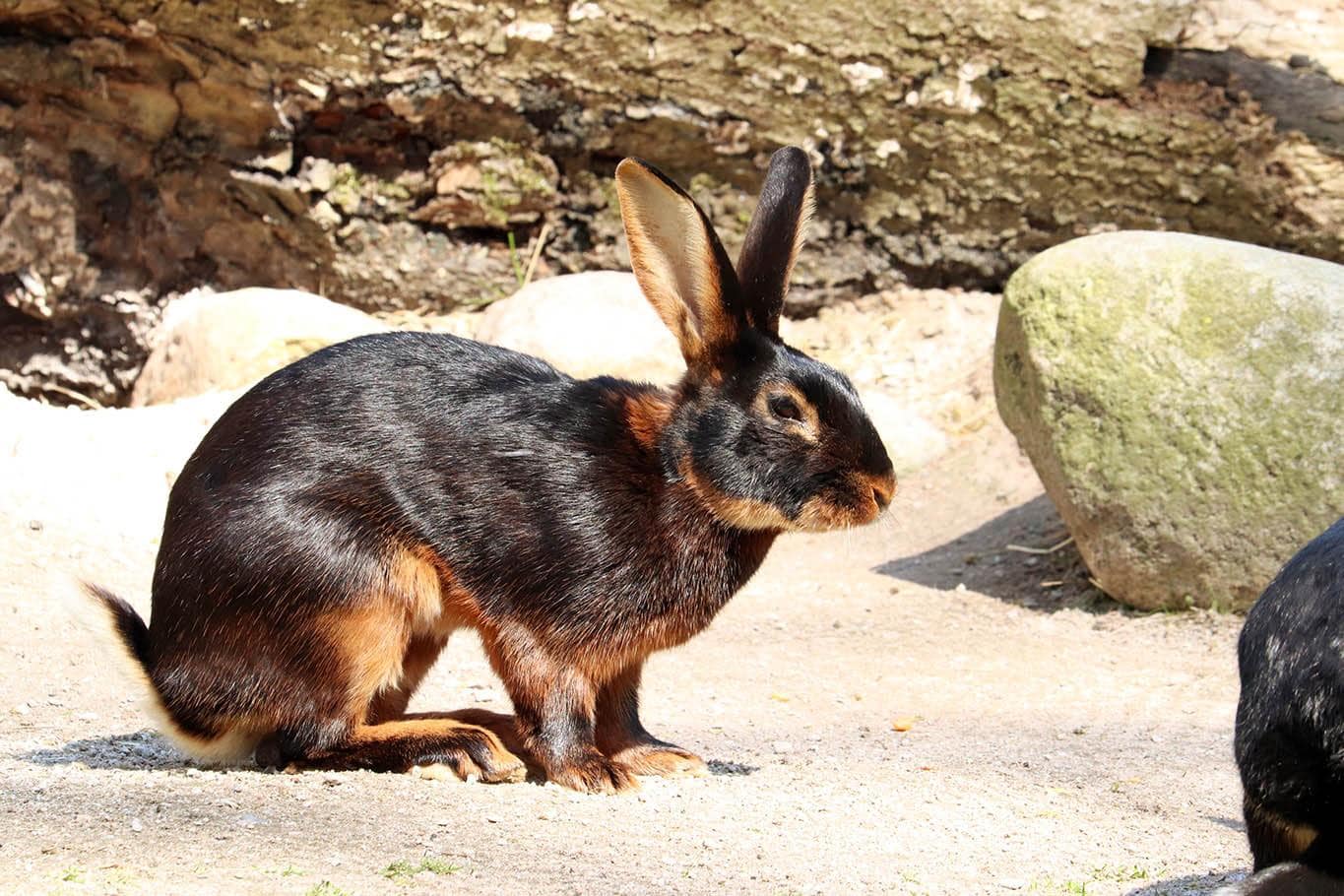
There’s something even in the stance of a Belgian Hare that makes one think that they mean business. Being closely descended from wild Belgian rabbits, they still have the lithe body and powerful feet of their distant ancestors. Some breeders say it’s the insistent presence of these wild genes that lends Belgian Hares one of two personality traits, making them either fighters or runners (but rarely both).
2. Checkered Giants
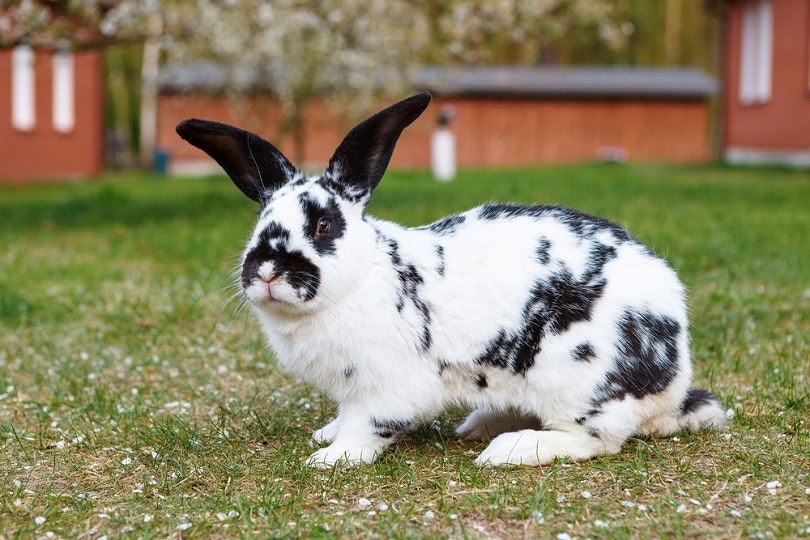
As one of a very limited selection of full arch breeds in North America, the Checkered Giant has both a similar shape and disposition as the Belgian Hare listed above. Though their larger size (up to 16 pounds not being entirely uncommon) might otherwise lend them a more mellow temperament, some Checkered Giants just seem to have a mischievous streak. If put into what they think is a dangerous situation, this can lead to aggressive behavior.
3. Lionheads
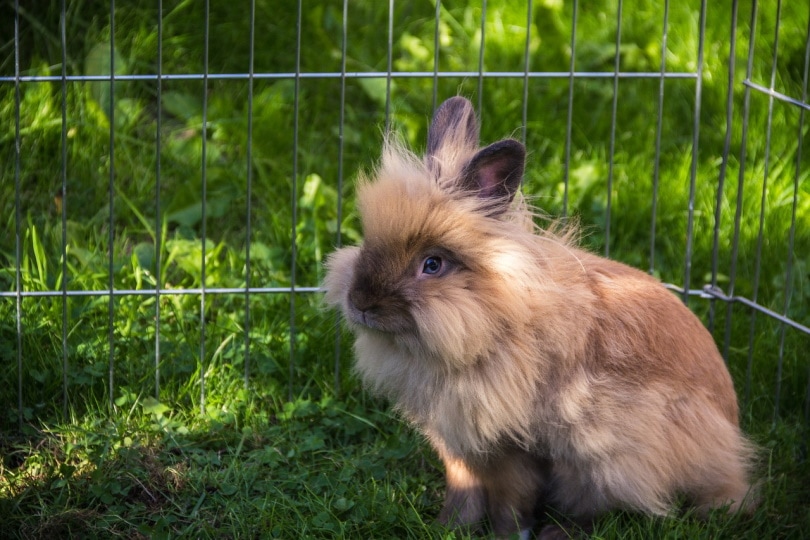
If their leonine appearance didn’t give away something of their prideful temperament, their generally high energy levels certainly would. As with many smaller rabbits, the under-4-pound Lionhead has been known to get confrontational when feeling ill at ease. Though generally mild mannered, Lionheads tend to settle arguments with physical aggression rather than demurring to other animals.
4. Holland Lops
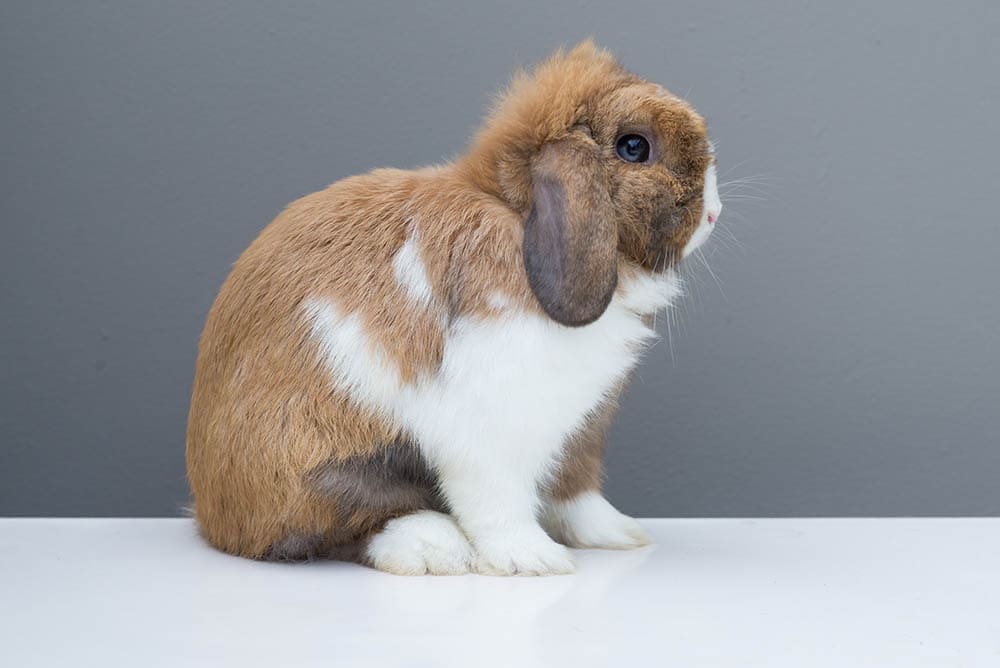
Often described as being like a bulldog in shape, the Holland Lop also shares some attitude characteristics with the famous dog breed. Don’t let their petite size fool you; when irritated, they will often bully their way through whatever happens to lie in front of them. Thankfully, their miniature stature often keeps them from being able to do any real harm to much of anything besides an unfortunately placed electrical cable.
5. Netherland Dwarfs
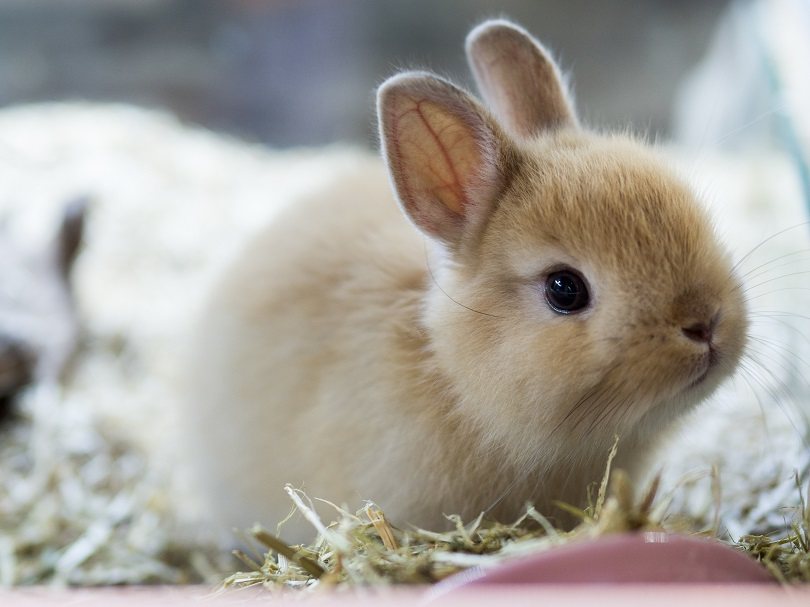
What in some situations can be seen as a fearless, courageous attitude for the Netherland Dwarf can just as easily turn to being hostile and mettlesome given the wrong set of circumstances. Somewhat humorously, your authors have seen this aggressive behavior firsthand: Upon meeting a Netherland Dwarf named Lady Grey for the first time, our Flemish Giant rabbit was boxed lightly about the ears and ran out of the room they were introduced in. While neither rabbit was hurt, our Giant did seem mightily confused!
What’s more, Netherland Dwarfs have a reputation for spunky behavior like this. Some rabbit owners find this endearing, as they also have almost no ability at all to back it up with their sub-3-pound bodies.
What Causes Aggression in Rabbits?
While each of the breeds we’ve listed above may be more predisposed to physically aggressive behavior than other more docile breeds, rabbit behavior is highly trainable. Oftentimes though, aggression can be a sign of something else going on with your rabbit, such as:
- Not being spayed or neutered. Aside from the benefits to your rabbit’s lifespan, spaying or neutering them will also reduce any aggressive impulses.
- Being in pain. If they’ve recently suffered a minor injury, your rabbit will be more likely to respond even to kind gestures with aggression in order to protect themselves.
- Use a soft, quiet voice and slow, gentle movements to build trust. Especially if your rabbit is, it will respond aggressively to situations that make it uncomfortable.
- Spring hormones. Spring is the natural breeding time for rabbits, and an excess of hormones can cause them to act more aggressively than usual.
No matter the cause of your rabbit’s aggression, taking slow and gentle steps towards training that behavior out of them will almost always yield good results.
Final Thoughts on the Most Aggressive Rabbit Breeds
In general, rabbits make extremely kind, affectionate, and friendly pets. If you choose to adopt a more high-spirited breed of rabbit such as those listed in this article, be prepared to spend more time training their behaviors and exercising patience! Over time, they’ll come to know and trust you in a way that will diminish any aggression, leaving you with an energetic and loving friend.
Featured Image Credit: Ersen Yoldac, Shutterstock









